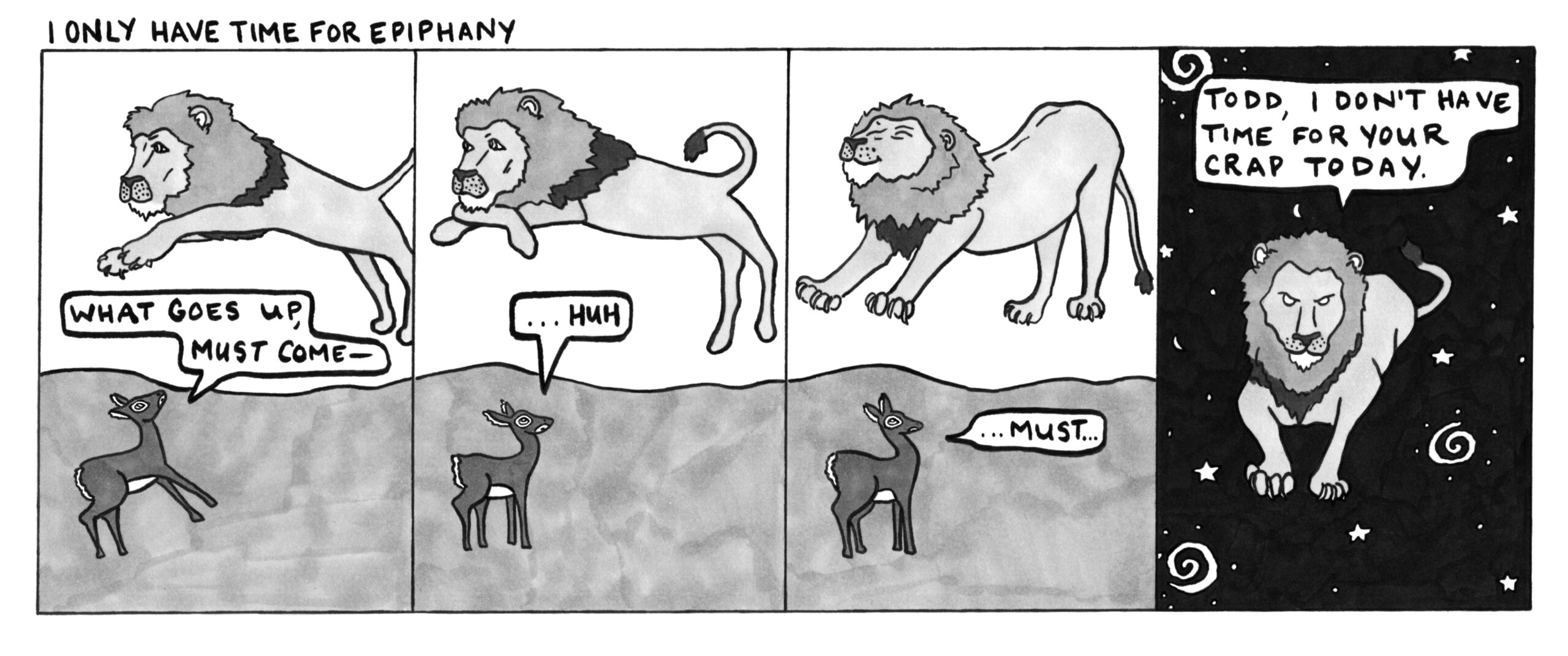Lately I’ve been thinking about this pandemic in terms of a road trip. Dave and I have driven across the country several times; during the holidays we frequently drive 12 hours to visit his family in Utah with Paul chilled out on vet-sanctioned sleep drugs in the back seat so he doesn’t frantically pant for the entire trip.
When your goal is simply to cover distance as quickly as possible, road trips are a strange experience, an endurance slog. You get snacks and soda and try to stay awake; you look at the landscape (from the natural beauty of the canyon lands to the unnerving walls of lawyer-related billboards near Las Vegas); you hope that your podcasts and audiobooks and music selections and human conversation partners will be enough to help you keep it together while the road blurs in front of you.
But the strangest part, at least for me, is that when I near the end of the trip—the last hour, when we begin texting people to let them know we’re approaching; the last 20 minutes, when we turn off the stereo so we can pay better attention to directions, now that we’re not just barreling forward on the clarity of the highway lines—I start dreading our arrival. Not because I don’t want to be where we’re going. Not because I actually want to stay in the car, with my legs cramping and the windows shaking and the Diet Coke long since gone watery in the cup. It’s just some sort of inertia that takes over. Fear-based, maybe: You’ve gotten used to this, it suggests. Do you really have enough energy left to get used to something else?
Just before we moved to California, Dave drove from his parents’ house in Madison, Wi to my parents’ house in Seattle, WA, and though he’d planned to sleep somewhere in Montana, he got stuck on the road. Apparently there was some sort of biker convention, and all the hotels in the entire state (at least along the highway he was driving) were full. I kept getting text updates about this, while I was in my childhood bedroom experiencing a terrible allergy attack, unable to sleep. Finally, I moved downstairs to the couch, and Dave announced he was going to drive through the night without stopping. Really? I thought. But what could I do? There was nowhere else for him to go but straight to me.
When I woke up, I was disoriented—more so when I found out I’d been offered a job at Google, which meant we had an actual plan. Up to that point, we’d just been winging it: maybe, when Dave arrived, we’d find jobs and an apartment in Seattle. Maybe we’d move to Chicago. Maybe the Bay Area. We didn’t know. That job offer meant there was no true pause in our momentum; as soon as Dave pulled up in our driveway, I was able to tell him where we would go next. He opened the door to the car. “I actually feel weirdly fine,” he said. But when he tried to stand up, his legs were jelly.
Now we are in a true pause. I do not know where we will go next. I don’t mean to be glib about the situation when I say that some strange road-trip part of my psyche is anxious about the end of all this. Not because I want people to keep getting sick, but because it will take a different kind of stamina to stand up after all these hours reclined and walk from the car to the steps, up the steps to the house, and from there, to wherever it is that comes next. I have always struggled with change, and so even in the midst of great upheaval, my mind clings to anything that looks like stability, though I know it isn’t right, it isn’t so.
Where are we driving? To what destination? Maybe to a place where we lie in the softest grass, beneath a banner of stars. Maybe it will be ok to step outside the car and simply collapse onto that green pasture. Or maybe our legs will have to carry us farther. We will have to wait and see. We will have to watch the road as it comes at us, monotonous, dangerous, endless. We will eat our fill of salt. We will keep our foot on the accelerator.
